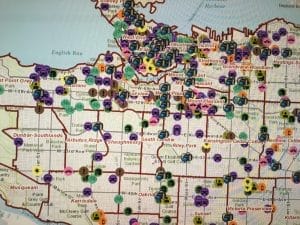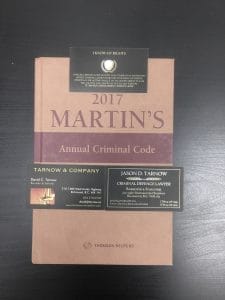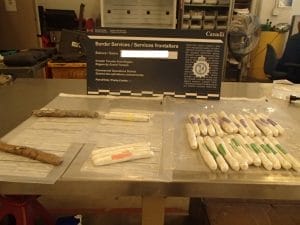by Jason Tarnow | Aug 29, 2017 | Crime, Legal Rights, Police, Wheels Of Justice
Presumption of innocence: We hardly knew ‘ye
Our federal government has once again announced its proposal to strengthen the powers of police investigation techniques in impaired driving files.
You would be hard pressed to find someone who would disagree that keeping our roadways safe is a top public safety concern.
You would not, however, have difficulty in having that same person agree that they value their fundamental rights as Canadians – including protection from unreasonable search and seizure, as guaranteed by section 8 of our Canadian Charter of Rights and Freedoms.
What our government is proposing to do will put you in a position to pick sides.
Under the current legislation, officers are only allowed to administer a roadside demand if they suspect the driver has alcohol in his or her body.
Under the suggested legislation, officers will be able to request a breath sample from any motorist they stop, regardless of the reason (broken taillight, speeding, not signaling for a lane change, etc – circumstances that absolutely do not strongly indicate a drunk driver).
Now, you may think this is no big deal – but you might want to think about the totality of this situation.
Here is a chart that details the current mandatory minimum penalties (these do not apply where injury or death has occurred):
|
Offence
|
Penalty
|
| First |
$1,000 Fine |
| Second |
30 days imprisonment |
| Third and all subsequent |
120 days imprisonment |
Here is another chart that details the proposed mandatory minimum penalties, which are categorized by BAC (Blood Alcohol Content) (again, these do not apply where injury or death as occurred):
|
BAC (per 100ml of blood)
|
Penalty
|
| 80 to 119 mg |
$1,000 Fine |
| 120 to 159 mg |
$1,500 Fine |
| 160 mg or more |
$2,000 Fine |
And if you refuse? They are proposing a minimum $2,000 fine. It doesn’t matter if you’re completely sober and you simply don’t want to be forced into an unnecessary procedure – a refusal is a refusal, and on top of that $2,000 fine, that refusal would result in a criminal charge too.
And all of that is for drinking and driving where no injuries or death occur.
Now – if you are in an accident and hurt someone, and the police suspect alcohol is a contributing factor, you will likely be charged with impaired driving causing bodily harm.
These penalties are enormous.
If found guilty in a summary proceeding, you would face a maximum of 2 years less a day in jail (anything 2 years and over lands you in a federal jail, anything less than 2 years will put you in a provincial jail). If you are found guilty of the same crime after being punished by indictment, the maximum term is 14 years.
But if there is a death involved, our government doesn’t want to rule out what we rarely see in our judicial system – life imprisonment. This is in range with the sentence given for any other crime that results in death.
If this legislation succeeds, it will be interesting to see how the statistics reflect the increased authority to police. As it currently stands, the law allows the police to use their discretion to determine whether or not they suspect a driver has alcohol in his or her body. This new legislation would completely eradicate the need for officers to rely on their skills, training, and intuition – they don’t need to form an opinion whatsoever. They can simply pull anyone over and demand that they provide a breath sample.
So while this legislation is being presented as a way to protect Canadians on our roadways, it is also giving a pass to police on their responsibility to adhere to our presumption of innocence over guilt in these specific circumstances.
The law, and available defences to the impaired driving are constantly shifting and changing. There are many facets of these specialized investigations that require the assistance of experience defence counsel. At the Tarnow Law office, our lawyers bring forward over 45 years combined experience.
We are conveniently located in Richmond, B.C. only a few steps away from Brighouse Station on the Canada Line, which brings you from various locations in Metro Vancouver in 20 minutes. We service all areas of the lower mainland (including but not limited to Surrey, New Westminster, Port Coquitlam, North Vancouver, and Abbotsford) the interior of B.C. (including but not limited to Cranbrook, Kelowna, Kamloops, and Salmon Arm), Northern B.C. (including but not limited to Prince George, Prince Rupert, and Quesnel) and in the Yukon Territory where we offer services in Whitehorse, Dawson City, and Old Crow. Contact our office today for your initial consultation.
by Jason Tarnow | Jul 24, 2017 | Crime, Legal Rights, Police, Social Media, Wheels Of Justice


The Vancouver Police Department announced that it will be using a new form of intelligence to stop crime before it happens.
No, it isn’t the formation of the Psychic Task Force. It isn’t any sort of “Big Brother” surveillance method (I think) – rather, the VPD has declared it will be the first law enforcement agency in Canada to utilize a “crime prediction model” that will tip officers off to property-crime offences before they happen.
Unsurprisingly, the public has been given very little information about what this new tool is able to do. So far, all we have been told is that it is a computerized program that was apparently very successful in its 6 month pilot project.
The program identifies both residential and commercial areas that display a high-likelihood for property crime. Surveillance areas are set up within a 100-500 meter perimeter, and officers are then dispatched to those areas for visible public presence.
The presence of police, of course, acts as a deterrent for thieves and vandals.
Interestingly enough, this comes as a further development to the 2015 crime mapping tool developed by the VPD. This interactive map is available to the public, for use by anyone interested in learning more about which areas in Vancouver are deemed higher risk. While many people attribute
While this may seem like a weak method of combatting serious and ongoing theft and vandalism, preventative measures are only deemed necessary once an issue has spiralled out of control.
Charges that police hope to see a reduction in as a result of this new preventative measure:
- Break and Enter
- Break and Enter to commit an Indictable offence
- Theft under $5,000
- Theft over $5,000
- Mischief
- Possession of stolen property
It isn’t unusual to see “petty” crimes, such as minor theft, escalate into more serious situations that can include violent offences as well – for example, a man breaks into a vehicle looking for valuables, but the owner of the vehicle happens to come down to his car as the crime is in progress. An altercation ensues, police attend, and the charges include break & enter, theft, AND assault. By preventing the theft, the entire situation could have been avoided.
Ideally, this tool will aid police in preventing some crimes from happening, but realistically, crimes will still occur in the areas that aren’t padded by police presence.
We are conveniently located in Richmond, B.C. only a few steps away from Brighouse Station on the Canada Line, which brings you from various locations in Metro Vancouver in 20 minutes. We service all areas of the lower mainland (including but not limited to Surrey, New Westminster, Port Coquitlam, North Vancouver, and Abbotsford) the interior of B.C. (including but not limited to Cranbrook, Kelowna, Kamloops, and Salmon Arm), Northern B.C. (including but not limited to Prince George, Prince Rupert, and Quesnel) and in the Yukon Territory where we offer services in Whitehorse, Dawson City, and Old Crow. Contact our office today for your initial consultation.
by Jason Tarnow | Jul 20, 2017 | Crime, Criminal Attorney, Legal Rights, Politics, Social Media, Uncategorized, Wheels Of Justice
 It is commonplace that first-time offenders rarely have a good understanding of the judicial process. Although it would be fantastic if everyone was fully apprised of their rights and obligations under Canadian law, it is unrealistic. However, I hope that this post will answer a few very common questions we receive on a daily basis.
It is commonplace that first-time offenders rarely have a good understanding of the judicial process. Although it would be fantastic if everyone was fully apprised of their rights and obligations under Canadian law, it is unrealistic. However, I hope that this post will answer a few very common questions we receive on a daily basis.
Lets get started.
Q – I’m looking at my Court documents, and it appears that I am being charged by someone named Regina. Who is she? I don’t even know anyone by that name?
A – Regina is the latin word for Queen. As Queen Elizabeth II is the reigning Monarch, Regina is the term used in legal context. When a male takes the throne, the term will change to Rex, the latin word for King.
Q – My wife and I got into a really heated argument and the police were called. I was arrested and charged with assault, and now there is a no-contact order between us. My wife and I met for dinner last night to talk things over, and we agreed that it was silly to call the police. She would like to drop the charges, how can she do this?
A – In British Columbia, individuals do not press charges, and neither do the police. The police investigate, prepare a report, and recommend charges to Crown Counsel. Crown Counsel then reviews the information and approves or denies charges based on the strength of the evidence. There must be a reasonable likelihood of conviction to pursue prosecution. In short, your wife cannot “drop the charges”. Additionally, since there is a no contact order in place, you cannot contact your wife, directly or indirectly, until the order is lifted. Ignoring the no contact order could result in a Breach charge, landing you in jail.
Q – I’ve been charged with an Indictable Offence. Is that a misdemeanor?
A – The terms “misdemeanor” and “felony” are not rooted in Canada. Those terms are used in the United States. An indictable offence is very serious and carries significantly higher penalties than the less serious “summary offence”. One major difference is that summary offences can only be tried in Provincial Court by a Judge, whereas indictable offences can be tried in Supreme Court by a Judge an Jury. There are also “hybrid offences” which can be prosecuted by summary or indictment – impaired driving is one example. The choice to proceed by indictment is usually because of aggravating circumstances such as a car accident resulting in injuries.
Q – I was arrested for impaired driving and given a Promise to Appear (“PTA”). Several weeks later, I was contacted by the police who told me that the PTA has been cancelled. Does this mean my charges are dropped?
A – In short: no. Your PTA was likely cancelled because the police and Crown Counsel are still in the early stages of their investigation. Once an Accused person has attended their First Appearance, the judicial-delay clock starts ticking. The Supreme Court of Canada recently advised that proceedings in Provincial Court should run from start to finish in no more than 18 months – this means that you must be charged, and proceed to trial within 18 months. If the proceedings take longer than 18 months to be heard, there is probability for the case to be thrown out due to delay. In Superior courts, the proceedings should be completed within 30 months. So, while your PTA has been cancelled, it does not in any way mean that you are off the hook. There is no statute in Canada that prohibits the commencement of prosecution of criminal offences. In the United States, there is no statute of limitations on murder, but there is on sexual assaults and other serious criminal offences.
Hopefully the above information has answered a few of your questions, but likely not all of them. Of course, there are many complex questions that deserve a much more thorough explanation, and we are here ready to answer them.
Whether you have been charged with a minor offence under the Criminal Code such as theft under $5,000, assault, mischief under $5,000 or a more serious offence such as aggravated assault, sexual assault, assault causing bodily harm, or murder, it is crucial that you speak to one of our lawyers prior to making any statements to the police (which we will advise you not to do in any event), or anyone else for that matter. Because, although you’ll hear it from the cops first, I’m telling you again: what you say CAN and WILL be used against you.
We are conveniently located in Richmond, B.C. only a few steps away from Brighouse Station on the Canada Line, which brings you from various locations in Metro Vancouver in 20 minutes. We service all areas of the lower mainland (including but not limited to Surrey, New Westminster, Port Coquitlam, North Vancouver, and Abbotsford) the interior of B.C. (including but not limited to Cranbrook, Kelowna, Kamloops, and Salmon Arm), Northern B.C. (including but not limited to Prince George, Prince Rupert, and Quesnel) and in the Yukon Territory where we offer services in Whitehorse, Dawson City, and Old Crow.
by Jason Tarnow | Jul 18, 2017 | Crime, Legal Rights, Media, Police, Social Media, Wheels Of Justice
Ah, Canada.
Home of poutine, maple syrup, hockey, and….marijuana.
Some of the most highly coveted strains in the world are (apparently) found here in British Columbia. And finally, after Harper’s “War on Drugs” admitted crushing defeat, our Government is ready to rake in the dough from what will likely become one of Canada’s most profitable sectors: the sale of government regulated cannabis.
Of course news that Canada will finally be legalizing and regulating the sale of marijuana has received mixed reactions. Generally, though, the feedback has been positive. Taking marijuana out of the hands of drug dealers and instead putting it in the pockets of politicians seems like an excellent idea – right?
But on a more serious note, the legalization of marijuana brings forward a myriad of other issues. One of the most concerning topics is how police will combat drug-impaired drivers. Currently, police are permitted to conduct Standardized Field Sobriety Tests if they suspect a driver is drug-impaired. If the police do believe the person is drug impaired, a doctor monitored blood test must be conducted. Due to a lack of resources, it is often not practicable for police to transport the suspect to the hospital for such testing. As a result, these matters are generally less likely to be prosecuted.
Let’s be realistic: it is highly unlikely that anyone has been refraining from marijuana use while awaiting news of legalization. While we may see increased use over all due to the fact that certain retailers will be licensed to sell marijuana (think Shoppers Drug Mart and London Drugs), the fact of the matter is that people have been driving stoned for years – but the legalization of marijuana is likely to put more stoned drivers on the road. Our government is prepared to fight back by implementing new legislation that gives the police more authority to test suspected drug-impaired drivers roadside. Here’s the proposal:
- Allow police to demand oral samples at roadside from suspected drug-impaired. An instrument similar to an Approved Screening Device is currently being manufactured and tested;
- Allow police to proceed with a drug recognition evaluation or blood sample in circumstances where they have reasonable grounds to believe that an offence has occurred.
- Allow police to provide opinion evidence in Court regarding their belief that a driver was impaired by a drug at the time of testing. No expert opinion from an external source would be required. This eases the burden on the prosecution to prove the elements of an offence.
Keeping our roadways safe is something every single person, motorist or pedestrian, can get behind. In doing so, however, it is important that we uphold the values contained in our Charter – i.e. no motorist should be arbitrarily detained, which could be a direct result of a simple traffic stop turned drug-impaired investigation if this new legislation succeeds through Parliament. Police officers are not, by virtue of their employment, drug recognition experts. That knowledge comes from medical training which is obtained through intensive study under skilled professionals.
If the proposed legislation does succeed it will be scrutinized through various Charter challenges, prompting amendments to the legislation. It will likely fare similar to how the IRP regime was, and still is, highly criticized by many professionals.
If you are pulled over and police suspect you are under the influence of marijuana or any other drug, the first thing you should do is remember your right to silence. The only exceptions to the silence rule:
- Identify yourself upon request;
- Request to phone 604-278-0555 and speak with David Tarnow or Jason Tarnow.
Our firm is highly skilled in dealing with impaired (alcohol or drug) driving cases. While it may seem like an “open and shut case” with the evidence stacked against you, this area of law is extremely complex and requires the attention of a seasoned criminal defence lawyer. With over 50 years combined experience, the lawyers at Tarnow Law Offices have the knowledge and strategies to help you through this incredibly stressful time.
We are conveniently located in Richmond, B.C. only a few steps away from Brighouse Station on the Canada Line, which brings you from various locations in Metro Vancouver in 20 minutes. We service all areas of the lower mainland (including but not limited to Surrey, New Westminster, Port Coquitlam, North Vancouver, and Abbotsford) the interior of B.C. (including but not limited to Cranbrook, Kelowna, Kamloops, and Salmon Arm), Northern B.C. (including but not limited to Prince George, Prince Rupert, and Quesnel) and in the Yukon Territory where we offer services in Whitehorse, Dawson City, and Old Crow.
by Jason Tarnow | Jul 14, 2017 | Crime, Police, Social Media, Uncategorized
 On December 3, 2012, Mr. G (name redacted for privacy), owner of the trucking company he was transporting for, was arrested after 23 kilograms of cocaine was found hidden in a secret compartment in his vehicle.
On December 3, 2012, Mr. G (name redacted for privacy), owner of the trucking company he was transporting for, was arrested after 23 kilograms of cocaine was found hidden in a secret compartment in his vehicle.
Obviously, this product was not something Mr. G had declared when crossing into Canada – he had advised CBSA that he had just picked up two loads of produce from California and nothing more.
CBSA officers didn’t buy it.
A power drill was used on the exterior front wall of the trailer, and after it had penetrated through the wall of the trailer, it was removed – covered with a powdery white substance, later determined to be cocaine. Mr. G denied all allegations that he was involved in any drug trafficking, and claimed he had no knowledge of the drugs being in his vehicle.
Once drugs were found, the front wall of the trailer was removed, exposing 5 sub compartments, and 23 red bricks of cocaine, weighing 1 kilogram each, appraised at a value of 2 million dollars on the street.
Mr. G was arrested and charged with one count of importing a controlled substance, and one count of possession of cocaine for the purpose of trafficking.
He was the driver of the truck, the owner of the company, and the lone occupant in the vehicle at the time of his arrest. In acquitting Mr. G, the Judge noted several things of great importance:
1) The case against Mr. G was entirely circumstantial (in legal context, circumstantial evidence requires that an inference be made to determine a conclusion. Direct evidence, such as eye witness testimony, or DNA evidence, does not require that an inference be made). As this comment was made by the Judge, it is safe to assume that there was no physical evidence linking Mr. G to the crime (fingerprints on the drug wrapping, etc);
2) All of the officers who dealt with Mr. G described him as being cooperative, and showing no signs of suspicious behavior. This is crucial to Mr. G’s defence that he was unaware of the contraband in his vehicle. CBSA officers are skilled in identifying suspicious and evasive behavior – their ability to do their jobs effectively depends on it.
3) The Crown’s argument simply did not make sense. The condition of Mr. G’s vehicle (his cargo being in disarray, mainly) is what originally drew suspicion from CBSA. The Judge found that it is unlikely any drug trafficker would exercise such a low level of care and diligence in preparing to cross the border with such a significant quantity of drugs. Had Mr. G known what was truly in his trailer, he likely would have taken much more time to appear organized, and as such, not draw suspicion.
After nearly 5 years awaiting his fate, Mr. G walked out of the B.C. Supreme Court today a free man – something he likely will never take for granted.
The Courts of British Columbia are determined to curb the increasing volatile consequences of drug trafficking. While it has always been harmful to our communities, the number of fatalities associated with illicit drug use is growing ever higher. Our government is now taking a different approach to the problem by focusing on harm reduction for drug users – this includes safe injection sites, and immunity from prosecution for good Samaritans who seek help for drug overdoses. It does not include leniency for drug dealers: see our blog post on this topic.
Lengthy custodial sentences are becoming more and more common. It is increasingly obvious that conditional sentences have not adequately served as deterrents for drug traffickers to cease their illegal activities. Amendments to the Criminal Code in the coming years will likely bring even tougher penalties.
As demonstrated in Mr. G’s case, legal issues related to importing and trafficking are highly complex. A conviction for such a charge will permanently bar you from entering the United States, and will likely result in a host of other negative consequences. It is also wise, when traveling between the USA and Canada, to know what goods you are and aren’t allowed to transfer between borders.
If you have been charged, or if you are under investigation, it is strongly recommended that you contact our office to discuss your options. We are conveniently located minutes from the Brighouse station of the Canada Line, making our office easily accessible from various spots in Metro Vancouver. We are proud to provide services to all cities in the lower mainland including Richmond, Burnaby, Surrey, Langley, Port Coquitlam, Abbotsford, and Chilliwack. We also service residents located in the interior/northern areas of BC including but not limited to Kelowna, Kamloops, Penticton, Fort St. James, and Nelson.




